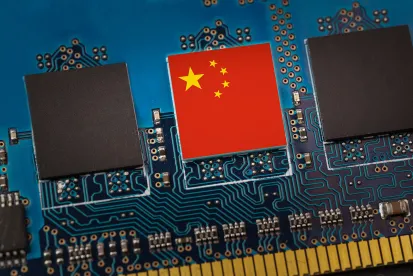Go-To Guide:
-
Congress and the White House are considering imposing restrictions on American firms’ ability to invest in certain Chinese industries because of concerns over Chinese technological and military advancement. The U.S. Senate recently approved notification requirements for outbound investments in certain key technology sectors.
-
The proposed restrictions would be a shift in U.S. policy, which generally has allowed American firms free rein in their investment activities and engagement in foreign countries, including China.
-
The efforts face opposition from some business and trade associations, who oppose imposing restrictions on businesses operating abroad and prefer a narrower, sanctions-based approach to limiting outbound investment.
On July 25, 2023, the Senate voted 91 to 6 to approve the Outbound Investment Transparency Act (the “Act”) as an amendment to the National Defense Authorization Act. The legislation was proposed by Sens. John Cornyn (R-TX) and Bob Casey (D-PA). It would require companies to disclose investments or acquisitions involving entities in China, Russia, Iran, and North Korea in six key technology sectors.
The White House is also preparing its own executive order to oversee American investments in China. The EO is expected to focus on increasing the transparency of U.S. foreign investment in China, and it may prohibit investment in the Chinese advanced semiconductor, quantum computing, and artificial intelligence industries.
Both of these efforts have been scaled back from their initial proposals because of opposition from pro-business interests in Congress who oppose expanding regulations over businesses abroad. Yet, this opposition has voiced growing concern with China’s military and technological advancement, leading to greater legislative and executive branch support for imposing some type of restrictions on U.S. investments in foreign adversaries’ technology and defense industries.
In the background of the deliberations over an appropriately scaled U.S. outbound investment regime stands the current U.S. inbound investment review regime administered by the Committee on Investment in the United States (CFIUS), and Biden’s September 2022 EO highlighting industries of concern and scrutiny on inbound investment. See GT Alert, New Executive Order Identifies National Security Risks for CFIUS to Consider When Assessing Foreign Investment in US Businesses.
Efforts to Review Outbound Investment Disclosures
The Act requires disclosure by U.S. persons of certain investments and acquisitions in countries of concern in several sectors: advanced semiconductors and microelectronics, artificial intelligence, quantum information science and technology, hypersonics, satellite-based communications, and network laser scanning systems with dual-use applications. While the focus of discussions has been on the concerns surrounding China, covered countries also include North Korea, Russia, and Iran. The Act requires disclosure of covered activities involving entities operating in or under the laws of these countries. Covered activities include investments, joint ventures, and joint research involving the transfer of intellectual property. Penalties may be imposed for (1) failing to submit a required notification or (2) making a material misstatement or omitting a material fact in a notification. There is no provision for a CFIUS-type committee for transaction review, or for rejection or blocking of notified transactions.
The Consolidated Appropriations Act of 2023 provided $10 million each to the Department of Treasury and the Department of Commerce to propose an approach to structuring an outbound investment review mechanism and to identify the resources necessary to implement the mechanism. In March 2023, the Treasury and Commerce Departments released their reports, outlining the Biden administration’s approach to restricting “investments that could result in the advancement of military and dual-use technologies by countries of concern.” Treasury estimated that establishment of the program would cost $10 million in 2023, with more funding required to implement and administer the program. The reports indicated the administration would establish an outbound investment review mechanism “in the near future” with Treasury implementing the program, in coordination with the Department of Commerce and other federal departments and agencies.
The White House has been working on developing an EO to implement an outbound investment review mechanism. Initial proposals included prohibitions on certain investments, but the EO has been scaled back to focus on transparency and the establishment of a pilot program focused on disclosures of deals involving artificial intelligence and quantum computing. Despite statements that the White House is on the verge of issuing an EO, no EO has yet been issued. Treasury, Commerce, and the U.S. Trade Representative have been unable to reach agreement on the structure of the review mechanism, or the extent of its oversight authority.
Key Takeaways
These proposals build on previous efforts to increase transparency and oversight of technology transactions involving Chinese companies. Increasing tension with Beijing and concern over China’s technological advancement already have led to requirements to eliminate several Chinese products from the federal supply chain and for Commerce to review transactions with China involving information and communications technology. Despite widespread concern about China’s access to U.S. data and technologies, disagreement remains on the right balance between protecting America’s national security and ensuring freedom to operate for U.S. businesses and individuals.
The Senate amendment may have passed a key milestone, but it has yet to face House scrutiny. Several House Republicans have objected to broad restrictions on outbound investment, claiming that it will be cumbersome to manage and will result in government intervention in the markets. House Financial Services Committee Chairman Patrick McHenry (R-NC) and House Financial Institutions and Monetary Policy Subcommittee Chairman Andy Barr (R-KY) favor a narrower approach that would prohibit outbound investment in sanctioned entities, or at least specifically identified entities. While their legislation has not been released, Rep. Barr has stated that it takes a sanctions-based approach rather than establishing a broader review mechanism.
Conversely, other Congressmen believe the Act does not do enough to limit outbound investment. House Select Committee on Strategic Competition with the Chinese Communist Party Chair Mike Gallagher (R-WI) favors a sector-specific approach to broadly restrict investment in AI, defense, or certain forms of biotech. He would go further and prevent some entities, like university endowments and state and local governments, from investing in China at all.
The version of the Act voted on by the Senate was itself a product of negotiations between the various factions. Prior versions of the Act provided a mechanism to deny U.S. deals in several sectors when national security was at risk. Sen. Cornyn has admitted that the original bill was scaled back to the present version because of inability to secure enough votes to support such authority.
These conflicting viewpoints have also plagued the Biden administration’s planned issuance of an EO. There has been public tension between the National Security Council’s desired restrictions on such transactions and the Treasury Department’s opposition to limiting outbound investment. Issuance of the EO has been delayed for more than a year as the administration has struggled to reach consensus on which industries should be covered and whether the government should have the power to block transactions it considers national security risks.
Both the Senate amendment and the proposed EO represent a substantial shift in U.S. policy, which has largely allowed American firms free rein in their investments and operations in foreign countries. Increasing tension with Beijing over trade practices and concern over China’s technological advancement has pushed national security officials to argue for more oversight on how U.S. technology is transferred to China in key technology areas like advanced microchips, weapons systems, and other defense industries. Although the final form of the restrictions has not been decided, it is likely that some limitations will be placed on outbound investments in China in the coming year.





 />i
/>i
